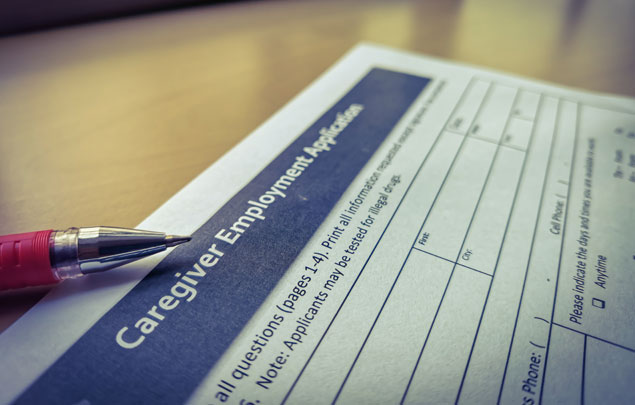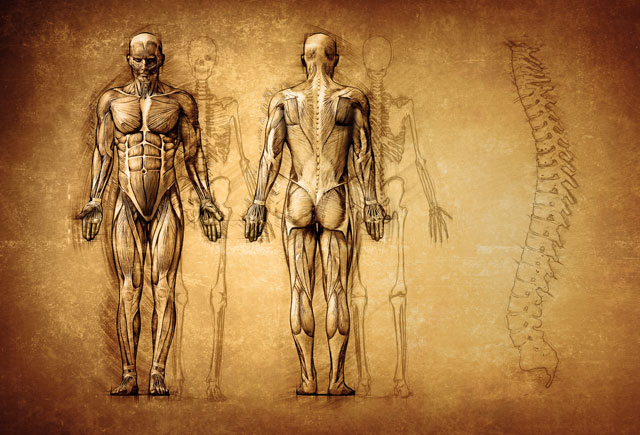People come to the idea of weight loss management for a multitude of different reasons. There are fleeting reasons to manage weight, like swimsuit season, a wedding, or getting in shape to show up your classmates at a high school reunion. These short-term reasons can provide a sudden burst of motivation, but rarely last long after the big event. There are also social reasons, like trying to lose a few pounds because you are dating and you want to look attractive. Some people want to slim down to please their partner. However the motivation starts, anyone who wants to manage their weight over the long-term will have to find a reason that is important to them, not to someone else.
For many, improved health is one of the best motivators for lifestyle change, and that is what this study will focus on: the improved health benefits of weight loss, exercise, improved nutrition, and long-term weight management.
Weight management does not involve miracle pills or slim-down shakes. It takes work and commitment. It also takes time. The weight you are trying to lose probably did not appear in a week, and it is definitely going to take more than a week to burn it off. A healthy pace of weight loss is about 1-2 lbs per week. The rewards of a healthy lifestyle change can be phenomenal and they will affect so many different areas of your life. Making a commitment to a healthy lifestyle won't just help you get back into those skinny jeans: It will allow you to set a good example for your children that they can follow into adulthood. It will help you feel better as you go about your normal daily activities. It will improve your endurance so you can do the things you love for longer, without getting tired. It will improve your mood and self-image. It can even save you money.
Weight management isn't all that complicated, either. This study will show that healthy eating is all about balance--consuming no more calories than you can burn in a day at your present activity level. You don't have to buy premade foods, and you don't have to subscribe to a diet plan. Some people get great results from participating in a support group like TOPS or Weight Watchers, but nearly as many people are able to lose and maintain long-term weight loss without participating in a program. Whether you choose a support group or not depends entirely on your personality and your needs. If you feel like it's something you can't afford, or if you feel like you would never have time to go to the meetings, or if you don't thrive on social interactions, then there is absolutely no reason to join one.
Long-term weight loss involves a complete lifestyle change. It will be uncomfortable at several points in time, and some days it will seem easier to give up. It is important to understand all the obstacles in the way of weight loss so that you can deal with all of them effectively. Remember, you can't make long-term changes unless you take ownership of your roadblocks and conquer them.
|
Some common obstacles are: o I don't have time to exercise. o I don't like "healthy" food. o I don't have time to eat healthy. o I travel too much/eat at restaurants too much. o I can't afford health food/gym membership. o I can't do it alone. o Genetics: My whole family is big. Interested in learning more? Why not take an online Weight Loss Management course?
o Bad examples set by others in your house o Emotional eating |
Health and Weight
|
o Type 2 diabetes
o Coronary heart disease
o High cholesterol
o Stroke
o High blood pressure
o Gallbladder disease
o Osteoarthritis (a painful deterioration of cartilage and joints)
o Sleep apnea and breathing problems
o Some forms of cancer (breast, colorectal, endometrial and kidney)
o Pregnancy complications
o Back problems
o Depression/low self-esteem
|
People generally have three reactions to the health risks of overweight.
-
Many people may not make a serious commitment to weight loss until they have come face-to-face with the reality of one of these conditions. For example, a doctor may tell you, "If you don't lose 30 pounds, I'll see you back in here in five years to deal with your diabetes." Or even worse, you or a loved one may have suffered a stroke brought on by a diet too high in saturated fats. For other people, chest pains might send them to the emergency room thinking they're having a heart attack. We'll call this first group of people scared straight. People who have been scared straight have already confronted the reality of weight-related disease, and they are ready to make a positive and lasting lifestyle change.
-
For others, these diseases seem impersonal and unlikely to strike them. These folks are a little like smokers who have convinced themselves that lung cancer won't happen to them. We will call this second group of people the Doubting Thomases. Doubting Thomases will probably not find health risks to be a great motivator to make lifestyle changes. They may start out trying to lose weight just for the sake of appearance, and that's fine. As time progresses, they may begin to feel the benefits healthy living and love it, or it may never be important to them.
-
The third category of people simply don't know that what they see as a "few extra pounds" can really be that bad. This third group is the one this lesson is hoping to reach, because there are so many positive benefits waiting for your body if you feed it and take care of it properly. With a moderate diet and regular exercise, you can start to see health improvements almost immediately, long before you reach your target weight.
The great thing is that even though it may take a long time before you reach the pants size you want to wear, your body will be able to reap the rewards of any positive lifestyle change immediately. Studies show that people who exercise regularly experience improved self-image. Regular exercise also increases the level of chemicals in the body called endorphins. Endorphins produce a happy, chilled-out kind of feeling among most people. Regular exercise has also been shown to help people suffering from depression -- without the negative side effects of drug therapies.
Exercise and proper diet can reduce cholesterol in the body. Fibers in foods like oatmeal help scrub cholesterol and bring it out of the blood. Eating lower amounts of saturated fats can also help keep cholesterol levels down. Another type of fiber, found in vegetables like broccoli and salad greens, helps scrub down the walls of the digestive tract, not only helping with bowel regularity, but also helping to lower the odds of colon cancer.
Participating in more regular physical activity strengthens the heart, making it easier for you to handle routine tasks like cutting the grass, shoveling snow, and climbing up stairs. The more fit you are, the lower blood pressure tends to be. With increased fitness, the whole cardiovascular system gets more and more efficient, so that your resting heart rate slows down and your body is able to recover from activity faster. So if you have to run for the bus, you will be more likely to catch it. And once you get on board, it won't take half an hour to get your breathing back to normal.
Dropping weight also reduces the load on your bones and muscles. If you suffer from low-back, knee or foot pain, you might be surprised how much better you feel after losing a few pounds.
Regular exercise also encourages good circulation, helping the body flush out the toxins that can make joints and muscles achy.
Many people say they don't like to exercise because they're just too tired from the normal day. But there are two different kinds of tired: brain tired and body tired. If you have been laying cinderblock all day, digging ditches, or hauling logs, then chances are good that you are body tired. But people who engage in that kind of activity all day usually don't struggle with excess weight. Most of us who type at computers, answer phones, or stand in front of a classroom all day, feelbrain tired. For people who are intellectually exhausted, moving more provides a welcome change of pace for the body. It gives your brain a chance to relax and stop analyzing and making decisions. For an hour or so, the body and muscles get to take over and do what they were made to do. Most people, even those who think they are too tired to exercise, end up feeling more energized after their workouts.
Think you can't afford to join a gym or eat healthy? This section will take a look at the high monetary cost of being overweight.
Earlier in this study, we discussed the health risks of overweight. These are certainly important, but for many people, budget is a real barrier to lifestyle change. There is a concept that exercise has to cost money, and that eating healthier has to be more expensive--especially with the wide range of cheap convenience foods like the dollar menu at fast food restaurants.
But here's the catch: When your weight falls outside of healthy limits, the health risks start to add up to real financial costs. For one thing, life insurance costs more for an overweight individual. That's because insurance companies know that the risk of death from any disease is greater for the overweight and obese.
To save money, a person can choose not to buy life insurance. But it's harder to avoid paying for health care, a cost that is substantially higher among the overweight and obese. According to an article in Health Affairs, obese people pay an average of $1429 (42 percent) more on health care than normal-weight individuals. The price difference becomes even higher as people age, and their risk for disease increases. This price difference makes sense considering the large number of health problems related to weight. Some of the problems, like back pain, may send individuals to more frequent doctor visits, with each of those visits tallying up a co-pay. Other conditions, like high blood pressure and diabetes, may require prescriptions that take a huge bite out of the monthly budget.
On top of the higher costs, it seems the overweight earn less on the job. According to a study in the British Medical Journal, the healthier people are, the more money they tend to make. There could be many reasons for this. One possibility is that healthy people have to take fewer sick days and they are able to focus at work. The other possibility is that our society tends to discriminate against the overweight and people with medical conditions. Whatever the causes behind the reality, weight is actually one of the few health factors over which we have a large amount of control. In other words, you have no control over whether or not you inherited a genetic tendency toward thyroid disease, or an irregular heartbeat. But you do have some control over weight.
As a society, these medical costs add up on a grand scale, especially considering that fat has become the new normal, with two-thirds of the adult U.S. population above guidelines for healthy weight.
A study by the U.S. Centers for Disease Control and Prevention (CDC) has estimated the cost of being overweight--that is, how much excess body weight contributes to health care expenses each year in America--to be $93 billion dollars annually. That's close to 10 percent of all health care costs in the U.S.
And that's just the medical expenses. The CDC's figure does not even try to calculate the cost to the economy of all the sick days people have to take to deal with weight-related health issues. Imagine how much more productive people could be if they didn't suffer from weight-related health issues, and how many doctors and pharmaceutical companies would have time to focus their efforts on other medical concerns.
Managing costs

































